Projects
Adaptive Education
To the project browser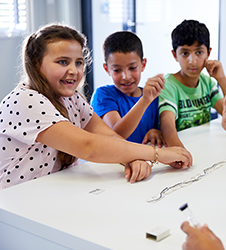
MultiDynAssess-India
The project designs, implements, and evaluates multilingual dynamic assessment (DA) in Indian primary government schools where English is taught in a context characterised by high sociolinguistic diversity and widespread code-mixing practices. It investigates how multilingual versus English-only DA affects Grade 4 students’ language and content learning over time, drawing on classroom observations and a longitudinal comparison with traditional static assessment in schools in New Delhi and Guwahati. By aligning assessment with learners’ full linguistic repertoires, the project aims to promote equity in education and offers implications for multilingual assessment practices in India and other linguistically diverse contexts in the Global South.
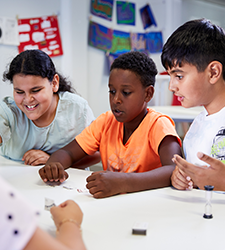
MultiDiskurs
The project aims to account for patterns of variation in the processing of linguistic structures in discourse. In particular, we investigate how bilingual children ranging in age from 8 to 12 integrate morphosyntactic and discourse information, for example by using eye-tracking experiments. Among the factors that contribute to individual variation, we explore the role of cross-linguistic influence, differences in bilingual profiles in terms of language and literacy exposure, individual cognitive skills and bilinguals’ ability to share discourse strategies across their two languages.
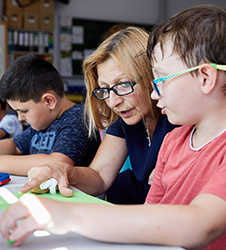
PRISMA
Working memory is central to school learning and is shaped by teacher–child relationships. Previous research has mainly focused on differences between children, although performance and relationships also vary substantially within the same child. Our project examines how these daily fluctuations affect short-term learning and long-term developmental pathways.
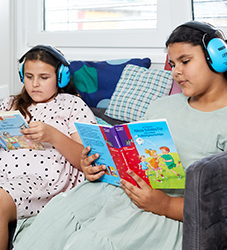
KaKoTex
The project KaKoTex investigates how grammatical features of texts and individual characteristics of the readers (e.g. multilingualism) affect text comprehension in 4th grade. The focus is on the comprehension of linguistic means for marking cause-consequence relationships, so-called causal connectives (e.g. because, therefore). The project aims to find out (i) whether explicit marking of causal relations facilitates text comprehension, (ii) for which causal connectors this holds, and (iii) which students benefit from it.
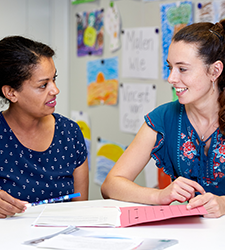
TeWiPrax
In the TeWiPrax project, researchers and teachers from the group „Sprachförderung/Mehrsprachigkeit“ of the “Campusschulen” program collaboratively develop and test materials that support secondary school students in understanding scientific texts. A particular focus is on academic and subject-specific vocabulary.

CLaB
This interdisciplinary research project investigates systematically Child Language Brokering (CLB) – informal translation practices by multilingual students – in German-speaking schools. Three sub-studies explore children’s and teachers’ perspectives on CLB, its interactional patterns, and its educational potential. The aim is to collaboratively develop approaches to translingual didactics and make them applicable to everyday school practice.
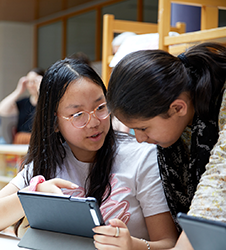
ELF int.
The project ELF int. aims to analyze the procedure for estimating length with a view to accuracy in an international comparison.
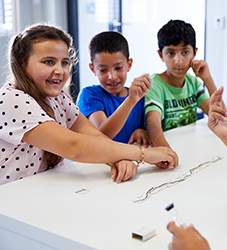
MaLeLiOS
The MaLeLiOS project aims to investigate how narratively designed mathematical learning situations encourage children to engage in mathematical conversations and thus enable them to listen and observe on the one hand and to talk about mathematics and mathematical activities on the other.

ViolAA
The project uses different methodological approaches (experimental vignette studies, ambulatory assessment and behavioural observations) to investigate teachers’ reactions to student misbehaviour at school.
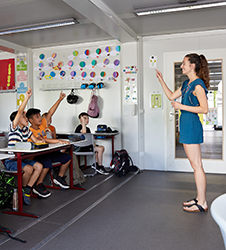
SLICE-UP
The SLICE-UP project is concerned with the ability to measure aspects of teaching quality using first impressions of untrained observers (so-called thin-slices ratings). Central aspects of teaching quality in classroom research are seen as the quality of learning-related interactions between teachers and students, such as the success of structured classroom management, constructive support from teachers, and lesson design that cognitively activates students.